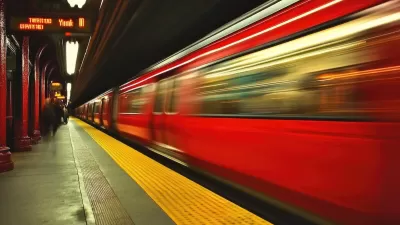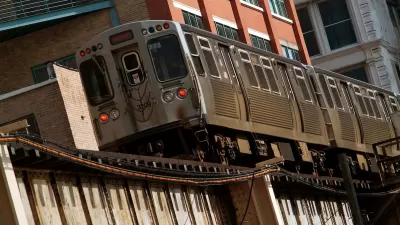Head-on train collisions can be avoided by simply keeping one train per track. There's a plan to make that happen, but it's years from implementation.
"Now, one year after the Metrolink catastrophe - and 152 years after the New York tragedy - laws have been passed, money has been allocated, and a few small changes have been made in operating procedures. But the one system that would have prevented this catastrophe, "positive train control," known as PTC, will not be fully implemented before 2012. That is three years earlier than the Rail Safety Improvement Act of 2008, which mandates PTC on all passenger rails in the United States.
Is it really that simple? Policymakers say so."
The National Transportation Safety Board has been pushing for the PTC system since 1990.
FULL STORY: Rail's 150-Year Wait for Safety

Trump Administration Could Effectively End Housing Voucher Program
Federal officials are eyeing major cuts to the Section 8 program that helps millions of low-income households pay rent.

Planetizen Federal Action Tracker
A weekly monitor of how Trump’s orders and actions are impacting planners and planning in America.

Ken Jennings Launches Transit Web Series
The Jeopardy champ wants you to ride public transit.

California Invests Additional $5M in Electric School Buses
The state wants to electrify all of its school bus fleets by 2035.

Austin Launches $2M Homelessness Prevention Fund
A new grant program from the city’s Homeless Strategy Office will fund rental assistance and supportive services.

Alabama School Forestry Initiative Brings Trees to Schoolyards
Trees can improve physical and mental health for students and commnity members.
Urban Design for Planners 1: Software Tools
This six-course series explores essential urban design concepts using open source software and equips planners with the tools they need to participate fully in the urban design process.
Planning for Universal Design
Learn the tools for implementing Universal Design in planning regulations.
Ada County Highway District
Clanton & Associates, Inc.
Jessamine County Fiscal Court
Institute for Housing and Urban Development Studies (IHS)
City of Grandview
Harvard GSD Executive Education
Toledo-Lucas County Plan Commissions
Salt Lake City
NYU Wagner Graduate School of Public Service





























